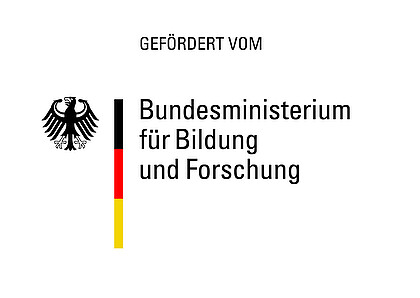On September 11, all partners of the new DAQUA project - development of a measurement method for determining wet steam quality in energy technology systems - met for the kick-off in Zittau.

Steam plays a central role as a heat transfer medium in energy technology. In turbines, superheated steam is expanded by lowering the pressure and temperature and can thus perform its work on a shaft. In thermal storage tanks, energy is stored in hot water during the transition (phase change) from gaseous to liquid. This latent heat of the water is used as storage capacity.
If energy is removed from the superheated steam, its temperature initially drops to the saturation point, the so-called saturated steam is reached. If the energy content drops further, saturated steam becomes wet steam, in which the first water droplets form. The greater the proportion of liquid in the steam, i.e. the more droplets, the easier it is for wear to occur on the blades or damage to the pipes in turbines.
To date, steam quality has been a thermodynamic variable that is difficult to measure. This is due to the fact that the liquid is both finely dispersed in the steam flow and appears in the form of liquid films on the wall, making it difficult for measuring instruments to detect its proportion. Methods already exist that can sound an alarm in the event of an increase, but they cannot provide any information about the exact volume of the droplets.
This gap is now being closed by the three partners in the DAQUA project (FKZ: 13FH163PX8). The Institute of Process Engineering, Process Automation and Metrology (IPM) at the Zittau/Görlitz University of Applied Sciences, HZDR Innovation GmbH (INNO) and the Institute of Fluid Dynamics at the Helmholtz-Zentrum Dresden-Rossendorf (HZDR) are jointly developing a hybrid measurement method that combines the strengths of thermodynamic and electrical measurement methods.

The results are being tested in the Zittau power plant laboratory at the THERESA test facility, which offers very good conditions for thermal energy storage and is often used for research and industrial applications. DAQUA is also funded by the Federal Ministry of Education and Research (BMBF) as part of the guideline for funding research at universities of applied sciences with companies, while HZDR Innovation GmbH supports the project with third-party funds.
Project member Sebastian Braun is using the promising research topic to make the findings on the measurement process available to the public in a doctoral thesis. In addition, a new technical employee will be able to start work at THERESA from November. Professor Uwe Hampel from the Helmholtz Zentrum Dresden Rossendorf and Professors Hans-Joachim Kretzschmar and Alexander Kratzsch, who is also the project manager, will provide technical support for the project. All project partners have until June 2022 to successfully complete their research.

